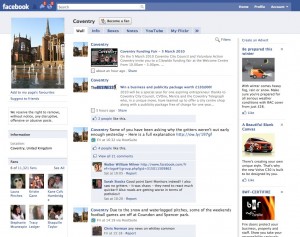John Naughton is spot on about the recent Facebook announcements in his Observer column:
What’s comical about this stuff is not so much its implicit arrogance – the assumption that we all want to share using Facebook – as its historical naivety. The history of the web is littered with the whitened bones of enterprises that once dreamed of total control. So until the cure for megalomania is invented, the only known antidote is a mantra. Repeat after me: the net is bigger than any single enterprise. And nobody owns it.
Well worth reading in full.




